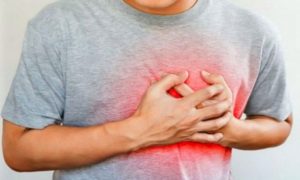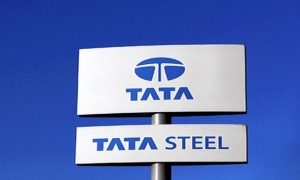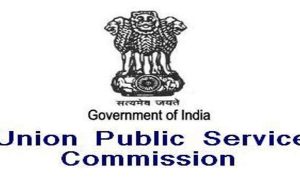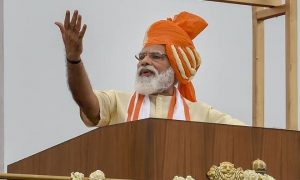Drinking water at the right time can promote satiety and ease digestion. Experts on when and how much water to drink before, during and after your meals.
Hydration is an important part of our daily routine and experts recommend drinking 8 glasses of water for optimum functioning of the body. However, it turns out that timing of hydration is also of key significance. For instance, hydrating your body immediately after waking up is recommended to kickstart the day on a healthy note. Similarly, there are rules to consume water before, after and during the meals that can aid the process of digestion and ensure nutrients are properly distributed throughout the body.
Drinking water at the right time can promote satiety, metabolism, ease in digestion and nutrient absorption. Having too much water too close to the meals can dilute digestive juices and hinder nutrient movement. Let’s understand from experts the ideal time to have water. Should it be before the meals, while eating, or after you finish.
Read More: Steatotic liver disease: Symptoms, risk factors and prevention of non-alcoholic fatty liver disease
Rules to drink water before meal
Having water half-n-hour before a meal is recommended by experts for promoting satiety and supporting breakdown of food. It will make sure you don’t overindulge and at the same time speed up the digestion process. However having water immediately before food can do more harm than good.
“The timing of water consumption in relation to meals can have a significant impact on digestion and nutrient absorption. From a medicine standpoint, drinking an appropriate amount of water before a meal can be beneficial for priming the digestive system. Consuming around 8-12 ounces (240-360 ml) of water approximately 30 minutes before a meal can stimulate the production of digestive enzymes, such as saliva and gastric juices, which aids in the breakdown of food. This pre-meal hydration can also promote a feeling of fullness or satiety, potentially leading to a reduced calorie intake during the meal,” says Dr. Rakesh Gupta, Senior Consultant, Internal Medicine, Indraprastha Apollo Hospitals.
“However, it is advised to avoid excessive water intake immediately before eating, as it may dilute the gastric acid and impair the digestion of proteins and other macronutrients,” adds Dr Gupta.
Charu Dua, Chief Clinical Nutritionist, Amrita Hospital Faridabad lists benefits of drinking water before meals.
- Appetite control: Drinking water before meals can aid in weight management by reducing calorie intake, as it may create a sense of fullness.
- Metabolic boost: Water consumption before meals can increase metabolic rate, potentially assisting digestion and nutrient absorption.
The trick to drink water during meal – take small sips
Drinking small sips of water during the meals is beneficial for digestion and aids in nutrient absorption.
“Sipping water during and immediately after a meal can facilitate the digestive process by enhancing the motility of the digestive tract and aiding in the absorption of certain nutrients,” says Dr Gupta.
Dua shares benefits and concerns of drinking water while eating.
- Support digestion: Drinking moderate amounts of water during meals can aid digestion, helping to soften food and transport nutrients throughout the digestive system.
- Concerns about dilution: Although some worry that drinking water during meals can dilute stomach acids and digestive enzymes, there’s limited scientific evidence to support this concern. Moderate water intake during meals generally doesn’t pose any issues.
Read More: What is Ankylosing Spondylitis And Why Is This Condition Known As A Youngster’s Disease?
What to remember about drinking water after meals
Gulping down huge amounts of water after eating can affect proper digestion and it’s important to drink water moderately post a meal. One must wait for 30-60 minutes before consuming large amount of water.
“In order to avoid large amounts of water after the food intake it is generally recommended to wait at least 30-60 minutes after a meal before consuming substantial amounts of water to allow for proper digestion and absorption. Ultimately, moderation is key, and individual responses to water intake may vary based on factors such as age, health conditions, medication use, and personal tolerance,” says Dr Gupta.
Dua shares reiterates the basic rules of water consumption post meal and breaks it down into benefits and precautions:
- Hydration and satiety: Drinking water after meals can contribute to hydration and may help with satiety, potentially reducing the desire for excessive snacking.
- Avoid excessive intake: While staying hydrated is important, drinking large amounts of water immediately after a meal might cause discomfort or bloating in some individuals.
Hydration and its impact on gut microbiome
“The gut microbiome, a complex community of microorganisms in your digestive tract, plays a critical role in digestion, immune function, and overall health. Hydration has a direct impact on the gut microbiome. Drinking sufficient water helps maintain a healthy balance of gut bacteria by promoting regular bowel movements, which can prevent constipation and reduce the risk of gastrointestinal disorders.
Dehydration, on the other hand, can lead to constipation and disrupt the gut microbiome’s balance. This imbalance can result in digestive issues and even impact your immune system,” says Dua.
Adequate hydration is beneficial for the gut microbiome, promoting regular bowel movements and maintaining a healthy balance of gut bacteria. Dehydration can lead to constipation and disrupt the microbiome, potentially impacting immune function.
Daily water intake recommendations
Here’s what Dua has to say about daily water consumption:
- The “8×8 rule” (eight 8-ounce glasses per day) is a common guideline, but individual needs can vary based on age, gender, climate, and activity level. A good indicator of adequate hydration is light yellow urine.
- It’s essential to drink when thirsty and adjust water intake according to personal preferences and physical needs. Overconsumption or dehydration can both have negative effects.





































